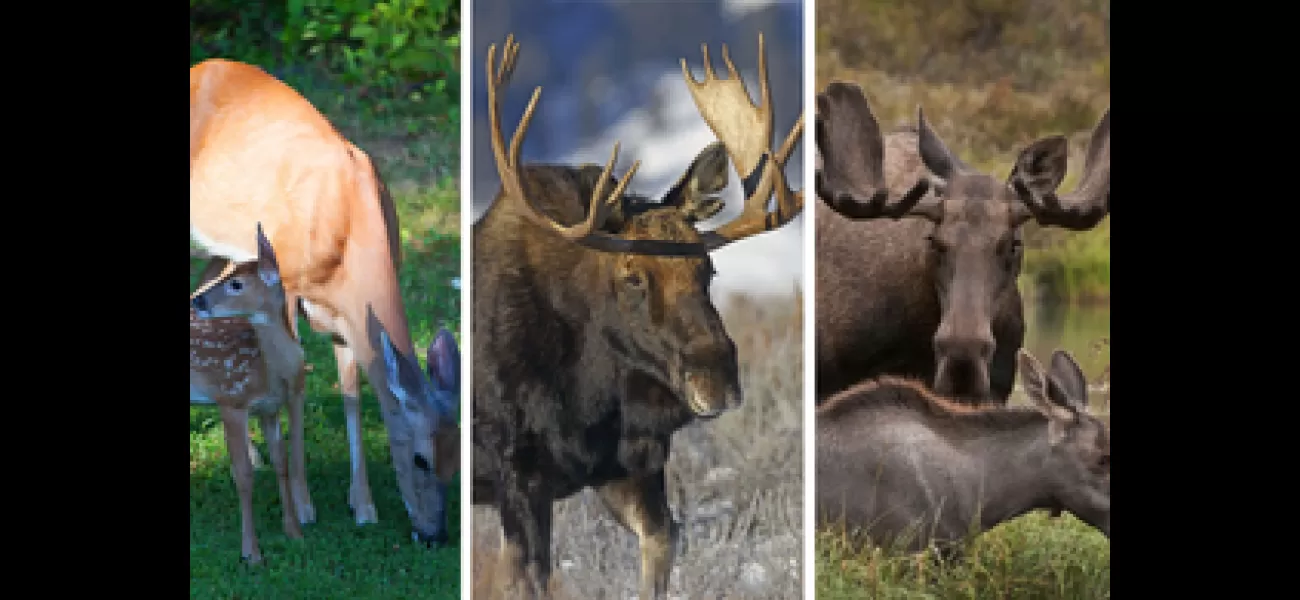New research shows that chronic wasting disease does not pose a threat to humans.
Study finds species barrier prevents spread of "zombie deer disease" to humans, a highly transmissible prion disease affecting deer, elk, and moose.
May 18th 2024.

According to a recent study, humans may be safe from the deadly chronic wasting disease (CWD) that has been affecting deer, elk, and moose. This disease, also known as "zombie deer disease", is highly contagious and belongs to the family of prion diseases. These are degenerative diseases that primarily affect the brain, but can also harm other organs.
CWD is caused by abnormal proteins that clump together and eventually damage the central nervous system in the brain. While this disease has not been found in humans, the most common form of prion disease among humans is Creutzfeldt-Jakob Disease (CJD). To understand the risk of CWD spreading to humans, scientists from the National Institutes of Health in the US conducted a study using a human cerebral organoid model.
To validate their findings, the team infected the organoids with human CJD prions. They then exposed healthy human organoids to high concentrations of CWD prions from white-tailed deer, mule deer, elk, and normal brain matter for seven days. After observing for six months, the results published in the journal Emerging Infectious Diseases showed that none of the organoids became infected with CWD.
The researchers were pleased to report that there seems to be a substantial barrier that prevents the transmission of CWD to humans, even when the central nervous system tissues are directly exposed to the prions. However, they did mention the possibility of new strains emerging with a lower barrier to infection. Despite this, they remain optimistic that the current data suggests humans are at a very low risk of contracting a prion disease from consuming CWD-infected meat from cervids.
In conclusion, the study provides reassurance that the species barrier between humans and CWD remains strong. This is good news for both humans and cervids, as CWD has been a growing concern in recent years. With continued research, we can better understand these diseases and work towards preventing their spread.
CWD is caused by abnormal proteins that clump together and eventually damage the central nervous system in the brain. While this disease has not been found in humans, the most common form of prion disease among humans is Creutzfeldt-Jakob Disease (CJD). To understand the risk of CWD spreading to humans, scientists from the National Institutes of Health in the US conducted a study using a human cerebral organoid model.
To validate their findings, the team infected the organoids with human CJD prions. They then exposed healthy human organoids to high concentrations of CWD prions from white-tailed deer, mule deer, elk, and normal brain matter for seven days. After observing for six months, the results published in the journal Emerging Infectious Diseases showed that none of the organoids became infected with CWD.
The researchers were pleased to report that there seems to be a substantial barrier that prevents the transmission of CWD to humans, even when the central nervous system tissues are directly exposed to the prions. However, they did mention the possibility of new strains emerging with a lower barrier to infection. Despite this, they remain optimistic that the current data suggests humans are at a very low risk of contracting a prion disease from consuming CWD-infected meat from cervids.
In conclusion, the study provides reassurance that the species barrier between humans and CWD remains strong. This is good news for both humans and cervids, as CWD has been a growing concern in recent years. With continued research, we can better understand these diseases and work towards preventing their spread.
[This article has been trending online recently and has been generated with AI. Your feed is customized.]
[Generative AI is experimental.]
0
0
Submit Comment





